The Proposal
 for sexual content, nudity and language.
for sexual content, nudity and language.
Reviewed by: Angela Bowman
CONTRIBUTOR
| Moral Rating: | Extremely Offensive |
| Moviemaking Quality: |
|
| Primary Audience: | Adults Teens |
| Genre: | Romance Comedy |
| Length: | 1 hr. 47 min. |
| Year of Release: | 2009 |
| USA Release: |
June 19, 2009 (wide—2,950 theaters) DVD: October 13, 2009 |
| Featuring |
|---|
| Sandra Bullock, Ryan Reynolds, Mary Steenburgen, Malin Akerman, Craig T. Nelson, Betty White, Denis O'Hare, Oscar Nuñez, Aasif Mandvi, Michael Nouri, Michael Mosley, Dale Place, Alicia Hunt, Alexis R. Garcia, Kortney Adams, Chris Whitney, Jerell Lee Wesley, Gregg Edelman, Phyllis Kay, Kate Lacey, Gene Fleming, Mary Linda Rapelye, Anne Fletcher, B. Johnson |
| Director |
|
Anne Fletcher |
| Producer |
| Kurtzman/Orci, Mandeville Films, Touchstone Pictures, Kristin Burr, David Hoberman, Alex Kurtzman, Todd Lieberman, Mary McLaglen, Roberto Orci |
| Distributor |
“Here comes the bribe…”
“The Proposal” is a romantic comedy, intended to be heartwarming, hilarious and classically cliché. And while it certainly delivered on the laughs, at some points so much so that the dialogue was drowned out by the roaring laughter of the audience, and even had a few tear-jerking scenes, I walked away more disgusted with each passing moment as these brief instances were forgotten leaving the crude and vulgar sexuality that dominated the film illuminated in mind.
Margaret Tate (played by Sandra Bullock) is a daunting and vicious New York executive who discovers she is about to be deported back to her native Canada. Desperate to maintain her position and save face within the company, she reveals that she is engaged to her assistant, Andrew Paxton (Ryan Reynolds), who is a U.S. citizen, and their marriage will resolve the deportation issue. The problem is that not only is this completely untrue, but Andrew in fact despises her, only answering her every bidding in the hopes of being justly rewarded with a promotion. As it turns out, the immigration process is not so simple as their assigned officer is out to prove their fraud, intent on a full investigation. The two come to a mutual agreement so they will both benefit from the marriage, but have to travel to Alaska to convince both his family and the skeptical immigration officer that they are truly in love. And as far as the storyline goes, it continues on a predictable course, as most movies of this genre generally do, as is the reason they are generally enjoyable.
While I haven’t seen all of Sandra Bullock’s films, I have to say that I had a higher expectation of her, as it does seem that she is known for her modesty. So I was extremely disappointed that she chose to go so far in this film. In a particular scene, her character Margaret has just finished showering and is in search of a towel. Meanwhile, Andrew is undressing, preparing to take a shower himself, neither realizing the other’s presence until they run into each other and fall down together, both completely naked and shown in side view. While all of their private areas are technically covered, this is still a gratuitous display, and in the moments prior to this incident, Margaret is shown in length with only her arm to cover her breasts and a small cloth mitt held in front of her groin.
In another scene, Andrew’s mother, Grace (Mary Steenburgen) and his grandmother Annie (Betty White) hire Ramone, an exotic dancer for Margaret. Ramone is not only the exotic dancer, he is the wait staff, sales clerk and marriage officiant of the town as well, and while intended to be comical rather than arousing, this scene nonetheless contains a man in a skimpy Speedo, gyrating in vulgar sexual positions around Margaret. And due to the length of the scene and the focus of the camera, was equally as horrifying an experience as the previously mentioned one.
Additional sexual content abounds, including the fact that Margaret and Andrew are assumed to be having sex so Andrew’s parents put them in a room together and Grandma Annie gives them a quilt with “special powers” which she calls the “baby maker,” this quilt is also referred to again later in the story. Grandma Annie also admits to being “knocked up” prior to her wedding as well as being “chesty” during a scene focused on Margaret’s breasts while altering the heirloom wedding dress in which Grandma Annie is on an “Easter egg hunt” trying to find Margaret’s breast in the large expanse of fabric that is unfilled by Margaret’s figure. Andrew’s parents bring the couple breakfast in bed, requiring them to jump into bed together (Andrew had been sleeping on the floor) but they have a difficult time arranging themselves after Margaret’s suggestion to “spoon” reveals that Andrew is “horny.”
Other negatives include Andrew grabbing Margaret’s behind on two occasions, the second one causing Margaret to threaten to cut off his balls. After the nude scenes, it seems almost irrelevant to mention the skimpy lingerie-type pajamas that Margaret wears to bed as they are quite modest in contrast. Margaret shares that she hasn’t had sex in eighteen months. There is a question about favored position (top or bottom) as well as an obscure reference to homosexuality in an office mate. Margaret is referred to as a “witch” as well as a “b-tch” and “Satan’s mistress.” Andrew is asked if Margaret “farts,” and they have a small argument over whether or not she does. I also found the fact that Ramone is both the exotic dancer and marriage officiant to be possibly offensive because of the seriousness of the marriage covenant and that it could have implied a pastoral role, especially as his legal status is questioned in the end which would give reason to believe he is not a Justice of the Peace.
Offensive language includes numerous uses of “oh my G--,” as well as “for the love of G--” and misuse of Jesus and Christ directly in addition to “sh-t,” “b-tch,” “cr-p,” “'p-ssed,” “jack-ss,” “-ss” and “balls;” the last two also used numerous times in a song/chant in which Margaret is dancing provocatively.
The spirituality is brought in from Grandma Annie’s type of Native American inspired beliefs in her reference to the ‘special powers’ of the quilt, the ‘spirits’ taking her upon death, ‘signs’ from the universe and a ceremony/ritual dance around a fire in tribal apparel in which she gives thanks to ‘mother Earth’ and asks for Margaret’s loins to be fertile.
As there was so much negative content I was tempted to skim over the bulk of it, simply recommending this film not fit for Christian consumption, however I also realize that each person has their own level of conviction and what they personally find offensive or distasteful so I felt it was important to convey not only the amount of negativity, but the extent of the content as well. And it’s too bad that after all that, there was hardly room to delve into the meatier parts of the story, in the conflict between Andrew and his father (Craig T. Nelson) that caused Andrew to isolate himself from his family and that prevented him from forgiving his father, or the tragic past of Margaret which propelled her into this callous and unemotional person. We obtain just enough to glimpse the person trapped inside so much ice with Margaret and the “reconciliation” between Andrew and his father was simply pitiful and unconvincing. As far as the actual “romance” between Margaret and Andrew, it appeared to be more lust from physical attraction than love toward the character that drives the two together, which makes one wonder if the creators of this story have lust and love confused.
While “The Proposal” makes the point of this particular fraudulent marriage being wrong, it does so by focusing on the wrong in the hurt and deception of Andrew’s family and Andrew himself in that it is potentially keeping him from his true love. These are noble causes, however without a higher purpose, it leads one to believe the marriage of convenience and a subsequent “quickie divorce” would have been acceptable had Andrew no family or long lost love to be accountable to. In the world’s eyes, marriage is not a sacred vow and covenant made before God, and according to this film, apparently, marriage itself really has no meaning. The fact that the concern of the feelings of others is the emphasis rather than the actual sanctity of marriage, and that marriage itself is never held in regard of any kind, and further degraded by the fact that the exotic dancer is the officiant in place of a priest or pastor is a sad reality of the current popular view, not only of marriage, but of God and of godliness. This is confirmed by the gloomy outlook held by characters at the end of the film. Andrew asking Margaret to marry him so he can date her, both admitting to being scared and obviously not ready to make such a somber and serious commitment, while on the surface may appear to be “cute” is at the same time repeating this underlying current of the irrelevancy of marriage. Also a comment made by Ramone, who tells the immigration officer that he wouldn’t say the two are soul mates, but at least they won’t kill each other. (The last part of this line I have to admit initially made me laugh along with everyone else, but thinking about it combined with the context of the previous and the rest of the movie truly dissolves any humor.) The problem is when you take an honest look at what you’ve just swallowed after watching this film, I’m afraid “The Proposal” isn’t at all worth the laughs and just leaves one feeling empty and dirty in the end.
I believe Paul summed it up very clearly in Ephesians,
“So I tell you this… that you must no longer live as the Gentiles do, in the futility of their thinking. They are darkened in their understanding and separated from the life of God because of the ignorance that is in them due to the hardening of their hearts. Having lost all sensitivity, they have given themselves over to sensuality so as to indulge in every kind of impurity, with a continual lust for more. You however did not come to know Christ that way… You were taught with regard to your former way of life, to put off your old self, which is being corrupted by its deceitful desires; to be made new in the attitude of your minds; and to put on the new self, created to be like God in true righteousness and holiness.” (Ephesians 4:17-24 NIV)
Violence: None / Profanity: Moderate / Sex/Nudity: Heavy
See list of Relevant Issues—questions-and-answers.


Moral rating: Average / Moviemaking quality: 3½
The potent combination of the film’s talents, solid script, and its generally wholesome 100 minutes are what make “The Proposal” gel together. Here you have a tale about family, togetherness, mutual dependency, trust, genuine affection and selflessness, defending your woman, mistakes, hurt, and steely resolve. Watch it… standing… like a man… or kneeling… as… a humble one. Or just sitting in your weathered theater chair. I think it’s safe to label this a romantic dramedy. The trailer is your synopsis. Check it out; it bears great resemblance to the actual 1 2/3 hour product… and perhaps “Green Card” from 20 years ago (Gérard Depardieu, Andie MacDowell).
Segue: The main review is in need of a fair rebuttal on two points. First, in Ryan Reynolds' character’s defense, he admits to just waking up in the spooning scene. While the main reviewer is right in her description of the events, I believe the connotation of the word “horny” doesn’t exactly encapsulate the cause or effect of said scene. Being a guy myself, I’ll be the one to say it, as squirrelly as it may sound. It HAPPENS. I’m sorry. You’re not a dude. Show a little open-mindedness. I know it’s fiction, but still.
Secondly, I think the remark on lust vs. love in the case of the protagonists is sorely misplaced. I do believe in the potential, the real possibility of meeting one’s mate—and KNOWING it—within a few days' time. My God-fearing parents first come to mind. If you read the Word, Isaac and his wife Rebekah are classic examples! Abraham’s servant—ANOTHER PERSON—was sent to fetch a stranger for his son Isaac. Sure God intervened on behalf of the servant when he asked the Lord for insight, but still. The scripture says after completing the journey, the servant filled Isaac in on all that transpired, and then what does it say??? Isaac took Rebekah into his momma’s tent, they consummated their marriage, and “So she became his wife, and he LOVED her.” The same can be said of this movie’s fictional couple. All throughout the movie, you as the viewer, witness the rapid transformation in Reynolds' and Bullock’s shared dynamic. It progress from the awkward, often hateful, and forced coexistence of their being boss and underboss to that of genuine care and respect for one another. Furthermore, they act HONORABLY the entire time they parade around in their charade. Towards the end, they openly express they’re scared, aloud, to one another, knowing full well their past history of standoffish battles and bitter discord. Still they were willing to give their pretend marriage a real go, as sealed by their own mouths' confession of being scared. No main reviewer, I don’t think this story was a convoluted portrait of lust, but rather a portrayal of proactive love.
Moral rating: Average / Moviemaking quality: 4½
As for the nudity, yes, Reynolds and Bullock’s characters were embarrassed and acted correctly by correctly covering themselves up. However, one might forget that the true danger is that we are seeing two actual people naked on camera for quite a while. It does not matter if the “characters” acted nobly. In essence, two REAL people are naked; both of whom are attractive. The scene is very vivid and truly pushed the boundary of its PG-13 rating. It’s a shame that this movie contained high amounts of crudeness because Bullock and Reynolds characters’ growth into loving each other was believable and sweet. It was refreshing that they did not fornicate. It also had good themes about how great it is to have a family and to not be alone. However, the aforementioned offenses make this movie better skipped.
Moral rating: Very Offensive / Moviemaking quality: 4
Moral rating: Better than Average / Moviemaking quality: 5
Moral rating: Average / Moviemaking quality: 4½
I didn’t get the feeling that bizarre spirit worship was being thrust down my throat. In fact, the movie kind of made a mockery of what to some people is their personal faith. I, also, wasn’t bothered by the partial nudity. It wasn’t sexualized, and frankly, not much different than being in the locker room after working out. Overall, in my opinion it was mild for PG-13, so I guess if you’re easily offended or conservative in your movie viewing, than this is a no brainer for you. But if you are remotely open, than don’t be scared off by the negative reviews. I think the discerning viewer can easily sift through the negative in this film, and take something away from it that is worthwhile.
Oh, as for the dance scene. Ok, what’s with the reference to pubic hair? The man was I’m thinking supposed to be Mexican, and was pretty hairy all over, so I don’t think I could’ve made that distinction. He’s in a speedo, and he’s hairy. Hairy legs, hairy tummy, very hairy. It’s supposed to make you go “OH GROSS.” While it’s kind of bizarre and meant to be shocking, it didn’t leave me feeling dirty. It did bring back fond memories of Chris Farley and Patrick Sweazy’s SNL dance off. Personally, I was more offended by the very long review by the person who didn’t see the movie than I was by the movie itself. I don’t expect non christian movies, made by non christians, starring non christians to be Christian. I also don’t want to sin by watching filth. This movie was not that for me.
Moral rating: Average / Moviemaking quality: 4
I liked watching a person who has been hardened by her circumstances become a changed individual through exposure to the love of a family. It shows that our walks in life can impact others. As for the ritualistic dancing, they lived in Alaska which has a huge influence from Native American beliefs. We should respect the rights of others to worship how they see fit. It wasn’t promoting this as the only true religion, it was showing that this was her way of showing thanks.
I liked the movie and think it was cleaner than most movies that have come out recently. The language could have been cleaned up and the film would have been better. In addition…the bird scene was distracting and unbelievable.
Moral rating: Better than Average / Moviemaking quality: 4
Moral rating: Better than Average / Moviemaking quality: 4
Moral rating: Average / Moviemaking quality: 3
Moral rating: Good / Moviemaking quality: 4½
Moral rating: Average / Moviemaking quality: 4
I thought the ending was cute, and overall, I really enjoyed the story. There was one thing that I didn’t like apart from the grand mother’s sexual comments, and that is the scene when she is out in the woods chanting. That was a bit odd, and I feel…had nothing to do with the story. It’s a chick-flick film, so if you like that kind of thing, this is a good one!
Moral rating: Offensive / Moviemaking quality: 4
Moral rating: Average / Moviemaking quality: 4
Moral rating: Offensive / Moviemaking quality: 4
It’s true that Hollywood has a distorted view when it comes to religion, family, and marriage and Betty White’s “religion” was so far out, I could only take it to be poking fun at some of the really weird ones around. Coming from a guy who has taken his wife to see many chick-flicks—I’m just glad everyone didn’t die or get maimed in a plane crash.
Moral rating: Average / Moviemaking quality: 3½
Moral rating: Average / Moviemaking quality: 4
Moral rating: Offensive / Moviemaking quality: 3½
It’s really too bad you can’t just buy certain scenes from movies, like buying songs on iTunes, because his face is absolutely priceless.
Now, the reasons why I did not like this movie:
#1: The grandmother’s chanting: It seems like there always is some weird religious practice or person in every single movie. Why does the grandma have to be into Indian mysticism and chant to Mother Earth and believe in spirits (which clearly are not angels, so what are they? Demons)? What does it add to the movie or plot? Zip, zero, nothing. The chanting only serves as an introduction for Margaret’s embarrassing little dance (reminiscent of one of the deleted scenes from “Miss Congeniality”). And it’s really sad, because this little old lady, who puts her trust in Mother Earth and spirits, is going to hell.
#2: The running-into-each-other-naked scene: Was it funny? Yes. Was it necessary to have Sandra Bullock and Ryan Reynolds running around without their clothes on? No!!! And it’s not really true that there’s no nudity in this film. Sure, you don’t actually see them completely naked from the front or back, but you do see them from the side. And Sandra Bullock, when she’s in the bathroom trying to escape from the dog, does cover herself up, but it’s hardly enough to even talk about. For all intents and purposes, she was naked.
#3: The male exotic dancer: Ha! More like revolting dancer. I didn’t actually reread the movie review before I saw it; I skimmed and missed/forgot the part about the strip tease. This part was not shown in the preview (funny how that usually happens) and let me say, it was horrifying! Disgusting, revolting, inappropriate, dirty, etc. I actually didn’t see much of the scene, but what I saw was enough. He was wearing a very skimpy thong (remember a certain article of clothing from “Legally Blonde”?) and did a dance (which I don’t believe any of the women in that bar could have found the least bit appealing) that reminds me of certain scenes from “13 Going on 30” and “Bride Wars.” Near the end of the movie, the stripper also ends up being the minister. Maybe he’s really just supposed to be the Justice of the Peace or something, but the whole thing just seemed like another slam against preachers of God’s Word. When I thought back over the movie the next day, my toes curled at the thought of Jesus sitting there with me in that theater (which He was).
To top it all off, the entire movie was littered with crude and sexual “jokes.” Did I laugh at some of them? I have to say yes. And actually, they weren’t a whole lot worse than the ones in “27 Dresses” or “Two Weeks Notice.” But, you know, Hollywood just doesn’t seem to get that people (and not just Christian people) actually do have normal conversations in which sex and body parts are never mentioned. And not everyone swears all of the time either.
So, do I recommend this movie? Heavens to Betsy, no! If you are a dyed-in-the-wool Sandra Bullock (or Ryan Reynolds) fan and you feel life will not be complete if you pass this one up, then when it comes out on DVD, borrow it from the library or a friend (you won’t waste money that way); remember to keep the channel changer and a pillow-to-bury-your-face-in handy. But do not expect another “While You Were Sleeping” or “The Lake House.” I know there are movies out there that are much worse, movies that make this one look squeaky clean, but does that mean we have to subject ourselves to even this much garbage? I love to watch movies (it’s kind of like a hobby) and I know it is almost impossible to watch anything that completely jives with what the Bible teaches. But still, some movies go too far, and for me, this one went too far. I wish there was a rating between R and PG-13, because I can’t imagine letting a 13-year-old watch this movie.
I would like to congratulate the people who were non-viewers of this movie. You did good! Knowing what I know now, if I could somehow go back to when we flipped the coin, and it was still heads up, would I have agreed to go? No! Going home and watching “Persuasion” would have been a much better option. I know for a fact there are no strippers cavorting about the screen.
Moral rating: Very Offensive / Moviemaking quality: 4
I agree with the original reviewer that this movie was filled with an unexpected (and unnecessary) amount of crude sexual humor and shocking nudity for a PG-13 film.
The shower scene in which Bullock is covered with only her arm across her chest and a small cloth on her lower “bikini area” was extremely offensive to me. The scene was not fleeting, but sustained, as she ran about searching for a towel and eventually bumping into and landing on top of her nude costar.
This was appalling and disgusting. There were children in the audience. I’m surprised at Bullock, and will be sure to check out any future movies of hers before viewing. I left this movie feeling dirty, and apologizing to God for not walking out sooner.
Moral rating: Extremely Offensive / Moviemaking quality: 3
Moral rating: Offensive / Moviemaking quality: 3
Moral rating: Extremely Offensive / Moviemaking quality: 3
Throughout the movie, there is a considerable amount of cursing and a surprising amount of nudity for a PG-13 film. Private parts were not revealed entirely, but enough to shock the viewer. Also, one character (who is also a waiter and the performer of wedding ceremonies) performs a highly offensive striptease at one point in the movie. Lastly, the grandmother of the family is obsessed with “spirits” and performs a ceremonial fertility dance around a bonfire. I would advise any fellow believer to stay away from this movie, as it will not leave you with a warm-fuzzy feeling. You’ll most likely walk away asking yourself why you went to see it in the first place.
Moral rating: Very Offensive / Moviemaking quality: 3
Moral rating: Very Offensive / Moviemaking quality: 1
My husband and I both believe strongly that if it is not appropriate for children to watch, then it is not appropriate for us as Christians to watch. I suppose depending on your closeness with the Lord, and your seriousness about following His commandments, will determine your opinion whether the film as offensive or not. The Bible, which is the foundation of Christian’s beliefs, says, "Finally, brothers, whatever is true, whatever is noble, whatever is right, whatever is pure, whatever is lovely, whatever is admirable—if anything is excellent or praiseworthy—think about such things." Philippians 4:8 (New International Version) Does this film fit this description? Would Paul watch this film? I think not. The problem with society today is that everyone is slowly and gradually accepting more and more immorality. There was a time in which kissing was forbidden on television. I wish those standards were still in existance.
Moral rating: Better than Average / Moviemaking quality: 4½
Moral rating: Better than Average / Moviemaking quality: 4
Moral rating: Average / Moviemaking quality: 4
Moral rating: Better than Average / Moviemaking quality: 4
Moral rating: Offensive / Moviemaking quality: 3
Discovering His love, grace, and the joy of His Holy Spirit will fulfill you beyond anything in the world. You won’t even want to see movies like this anymore when you find this joy. God didn’t create us just to be entertained. Entertainment should not be a priority, and when someone says, “oh, you have to see this movie!”, challenge them with the question why. Why do we have to watch the garbage out there? We don’t… You see, Satan uses the seeds planted in your mind by movies to work against you, thus bringing you farther away from the Lord. God’s Word is LIFE! What do you add to your life by watching a couple hours of acted fiction in a movie?… NOTHING!
God’s Word brings love, healing, joy, peace, etc., when applied with faith, and who doesn’t want these things? What would Jesus do? I am sad when I see “Christians” fitting in. What kind of example is that to the world? We only reinforce that those bad things are okay or that it is okay to see and hear certain things in movies when we as Christians take part in them. Those who say a movie like this doesn’t make you feel dirty simply are desensitized. Imagine if you were five and you saw this movie…you’d be shocked. Please Christians, I’m saying this because I care about each and everyone of you out there! That is a tiny grain of sand compared to how much God cares. We’re supposed to be leading the lost people away from stuff like these perverted movies… not joining them! Movies have a numbing effect to your spiritual senses, and over time, they begin to become a part of your personality. Notice how everyone talks about shows and movies and music and everything that you really wouldn’t care about if you were on your deathbed? Whatever happened to being real with people? We could all die tomorrow or Jesus could come back tomorrow, and we as Christians need to wake up to GOD’S REALITY! There’s more for our lives than what the world has to offer.
Being obedient to God means blessing for your lives. So, let’s not waste this time he’s given us. So many are consumed with the media and this culture in general. What if your best friend died the day after watching something so ridiculously stupid…you’d live with the wish that you had spent that last night having some real time with them. Through God’s ways we are to live in harmony, in love with one another, and the culture of this time is interfering with that… distracting us… distracting us from God’s Word and His truth.
Will this movie or these other offensive movies benefit your life, add more time to your life, matter to you one week from now, matter at the end of your life, MATTER IN ETERNITY?! God has more in store for us than we will ever know, and Jesus is waiting for you to take his hand and let him show your path. Think about it… God bless.
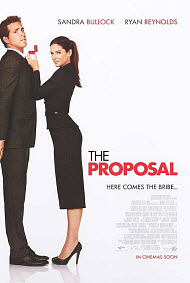

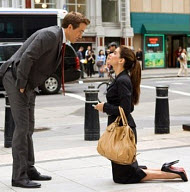
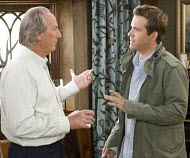
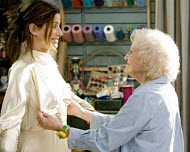
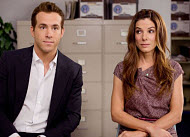

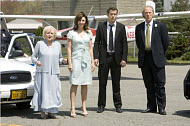
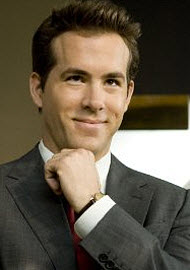




My Ratings: Moral rating: Better than Average / Moviemaking quality: 5